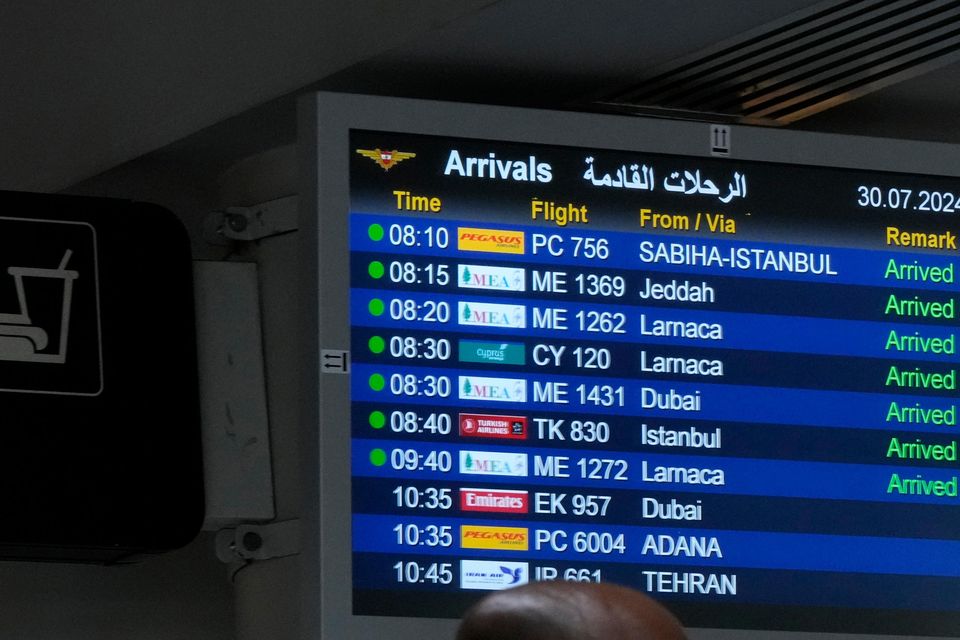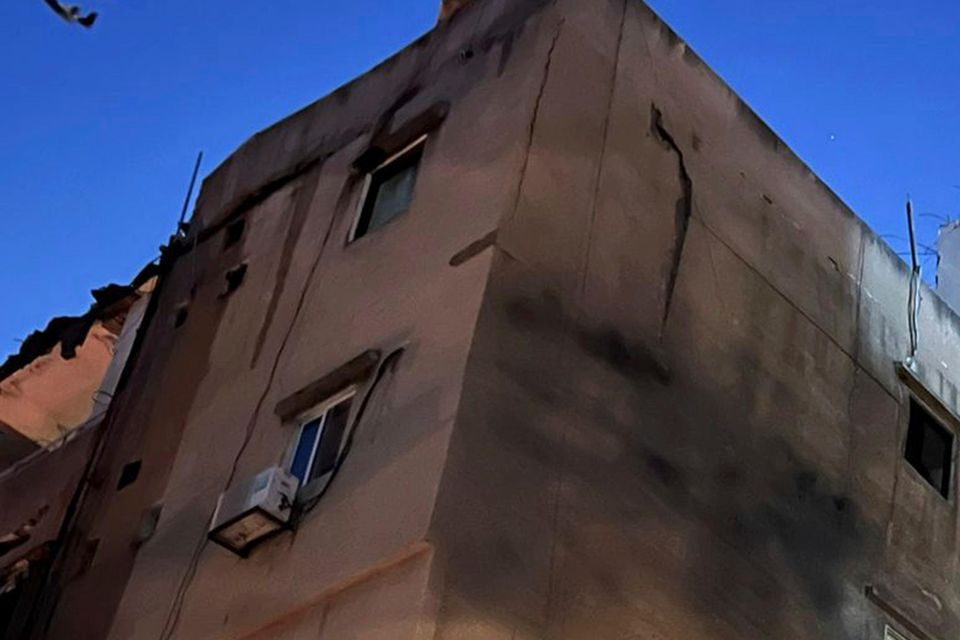Israel’s military said has it carried out a strike on Beirut targeting the militant commander allegedly behind the deaths of 12 children and teenagers in a rocket attack on the Israeli-controlled Golan Heights over the weekend.
Israel has blamed the rocket attack on the Hezbollah militant group, which has denied any role in the Saturday attack.
“Hezbollah crossed a red line,” Israeli defence minister Yoav Gallant posted on the platform X, formerly Twitter, shortly after Tuesday’s strike.
People wait at Rafik Hariri International Airport in Lebanon as fears of an escalation in the conflict between Hezbollah and Israel prompted some airlines to cancel flights (AP)
The office of Prime Minister Benjamin Netanyahu did not immediately release a statement, but minutes after the strike sent a photo of the prime minister with his national security advisor and other officials.
A Hezbollah official and the group’s TV station said that an Israeli airstrike hit Hezbollah’s stronghold south of Beirut on Tuesday evening, causing damage.
The airstrike on Beirut’s southern suburb of Haret Hreik damaged several buildings but it was not immediately clear if any Hezbollah official was hit, the Hezbollah official said on condition of anonymity in line with regulations.
The strike hit an apartment building next to a hospital, collapsing half of the targeted building.
The hospital sustained minor damages, while the surrounding streets were littered with debris and broken glass.
Lebanon’s state-run National News Agency reported that the airstrike in the southern Beirut suburb was carried out with a drone that launched three rockets.
A damaged building that was hit by an Israeli airstrike in the southern suburbs of Beirut, Lebanon (Hussein Malla/AP)
The last time Israel targeted Beirut was in January, when an airstrike killed a top Hamas official, Saleh Arouri.
That strike was the first time Israel had hit Beirut since the 34-day war between Israel and Hezbollah in the summer of 2006.
Meanwhile, a senior United Nations official has appealed for the reopening of land crossings into the Gaza Strip and removing crippling restrictions on the delivery of aid to avert a humanitarian catastrophe in the war-torn Palestinian enclave.
Corinne Fleischer, regional director of the World Food Programme, said her agency has become unable to provide food rations in the strip since it does not have enough food inside Gaza.
“Right now the biggest challenge is we don’t have enough crossing points to bring the food in,” she told The Associated Press in Cairo.
“We need road access. We need the Rafah (crossing) to open again. We need Kerem Shalom to work better. We need law and order.”
The Rafah crossing, which had been the main entry point for humanitarian aid, was closed early in May after Israel’s military took over the crossing’s Palestinian side as part of its ground assault on Gaza’s southernmost city of Rafah.

